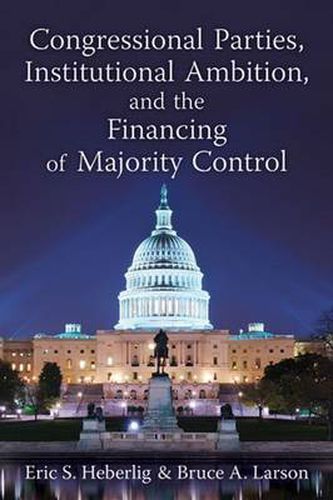Readings Newsletter
Become a Readings Member to make your shopping experience even easier.
Sign in or sign up for free!
You’re not far away from qualifying for FREE standard shipping within Australia
You’ve qualified for FREE standard shipping within Australia
The cart is loading…






Close competition for majority party control of the U.S. House of Representatives has transformed the congressional parties from legislative coalitions into partisan fundraising machines. With the need for ever increasing sums of money to fuel the ongoing campaign for majority control, both Republicans and Democrats have made large donations to the party and its candidates mandatory for members seeking advancement within party and congressional committee hierarchies.
Eric S. Heberlig and Bruce A. Larson not only analyse this development, but also discuss its implications for American government and democracy. They address the consequences of selecting congressional leaders on the basis of their fundraising skills rather than their legislative capacity and the extent to which the battle for majority control leads Congress to prioritise short-term electoral gains over long-term governing and problem-solving.
$9.00 standard shipping within Australia
FREE standard shipping within Australia for orders over $100.00
Express & International shipping calculated at checkout
Close competition for majority party control of the U.S. House of Representatives has transformed the congressional parties from legislative coalitions into partisan fundraising machines. With the need for ever increasing sums of money to fuel the ongoing campaign for majority control, both Republicans and Democrats have made large donations to the party and its candidates mandatory for members seeking advancement within party and congressional committee hierarchies.
Eric S. Heberlig and Bruce A. Larson not only analyse this development, but also discuss its implications for American government and democracy. They address the consequences of selecting congressional leaders on the basis of their fundraising skills rather than their legislative capacity and the extent to which the battle for majority control leads Congress to prioritise short-term electoral gains over long-term governing and problem-solving.